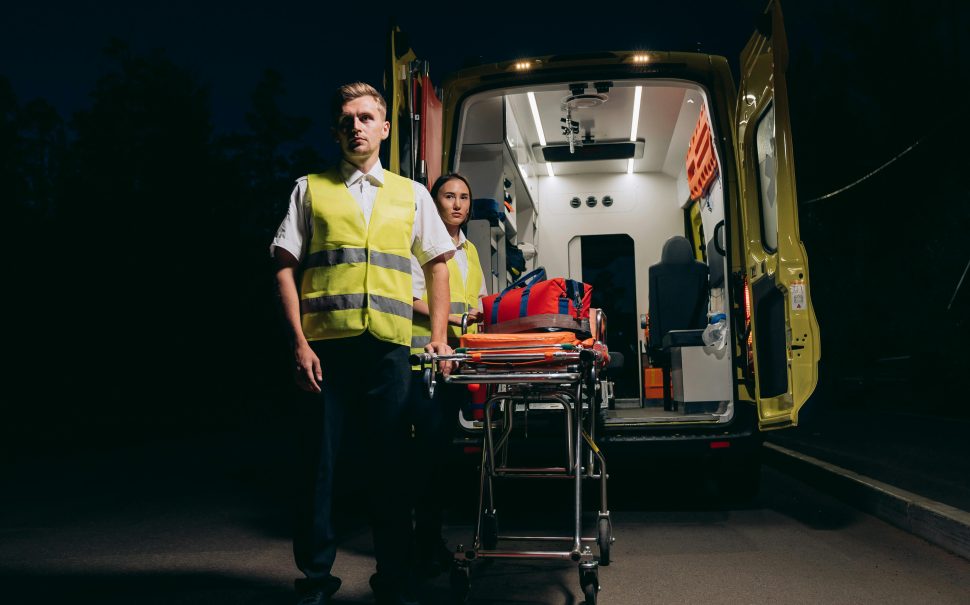The number of female night shift workers almost halved at the start of the pandemic, alongside the rise in flexible working from home.
In 2019, there were 96,000 female night-shift workers, which dropped to just 50,000 in 2020.
Those numbers have stayed relatively similar since, indicating that although the pandemic may have contributed to the drop, Covid itself was not the main reason for it.
A combination of more flexible working options and higher awareness of health risks may have contributed to the extreme drop.
In 2019, around one in 20 of the UK’s workforce worked exclusively from home whereas post-pandemic in 2022 it was one in eight (13%).
Jenny Bousefield, 54, a police detention officer and long-term night shift worker said: “I think with the advent and introduction of flexible home working, you can fit work around childcare better.
“People think, actually I’ve got more choice, I don’t have to do those night duties, those graveyard shifts if I can juggle my work from home around school runs and drop-offs.”
Bousefield has worked night shifts for over 30 years and puts her current digestive issues and heart problems down to prolonged shift work and inconsistent lifestyle.
Bousefield said: “I do think this is from decades of abusing my body to fit in with shift work.”
In 2016 Bousefield collapsed on duty and was diagnosed with sick sinus syndrome, her heart was healthy but the electrical signals kept dropping out.
Despite not having any family history of heart issues these episodes continued and Jenny was fitted with a pacemaker.
She added: “It’s been three years since I’ve been off night shifts and I haven’t had a pause. I haven’t had a pacemaker activation since.”
Night shifts used to be a common route for young families to alleviate the stresses of childcare.
Lorraine Wildman, 64, a nurse and ex-night shift worker said: “I do feel for the girls that are doing nights now who’ve got young kids because they don’t always have the luxury of self-rostering.”
There was a significantly less extreme drop in male night shift workers between 2019 and 2020 at 11% from 138,000 to 124,000.
This number has risen again and levelled out since the pandemic to an average of 129,333 male night shift workers, more than double the average of 55,000 female night shift workers in the last three years.
In 2023, it was also announced that women were seven times more likely to be out of work because of caregiving responsibilities.
If women are still more likely than men to be taking on the responsibility of child care and now have the option of flexible working from home, then this would help to explain why the number of female night shift workers hasn’t risen again whereas male night shift workers have.
Moreover, research has shown there is a positive relationship between long-term night work and the risk of heart problems, breast cancer, digestive cancer, and skin cancer.
For every five years of night work, there is a 3.3% increased risk of breast cancer in particular.
Health problems that can occur because of disturbances in circadian systems are fatigue, cardiovascular problems, depression and psychological issues, oncological problems, and problems with the female reproductive system.
A doctor who chose to stay anonymous said: “There is such a clear reason why people die sooner having had heart attacks, diabetes, and so forth when they work nights
“Working night shifts at a hospital is gruelling.
“It really does affect you. When I work night shifts I don’t do any sort of self-care.
“I don’t even bother thinking about what I’m eating, I’m just trying to get through the week.”
When asked what could be done to improve night shifts for women, she added: “I think a place to sleep would be good, better rota life, either you keep all your nights and don’t switch in and out or you do shorter stints.
“Three days in a row is just about okay but by the fourth night, we’re all delirious, and it’s just not safe.
“When someone at five in the morning has had a cardiac arrest and I’m on shift three or four of nights, I’m struggling to stick a cannula into them to get intravenous access.
“It’s really not safe, you really need accommodation.”
She explained that health experts have called for night shift workers to be able to take 20-minute power naps to alleviate the risks, but there simply isn’t the accommodation, time, or funding.
There are also immediate risks for those working in the healthcare industry, expected to do longer night shifts, sometimes up to 12 hours long.
In 2022 delegates at a European medical conference declared that staff driving home after a 12-hour shift posed the same risks as drunk drivers.
Around half of all doctors and nurses claim to have had near misses driving home after night shifts.
Wildman said: “I can remember, driving home after a night shift and getting to certain areas and thinking how did we get here?
“Or driving on the road and suddenly losing concentration and having a bit of swerve.”
Since nightshift patterns have become more stringent and work-from-home jobs more accessible, it’s easy to see why women may have chosen to make this switch.





